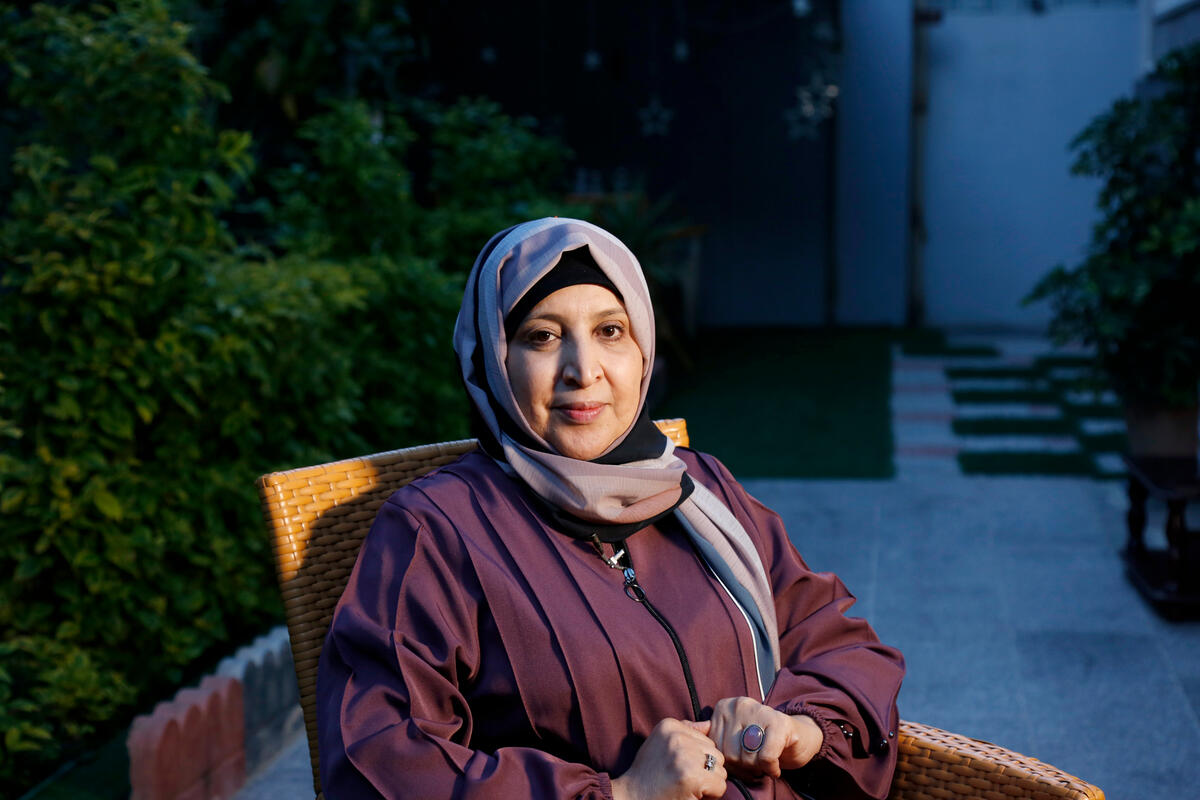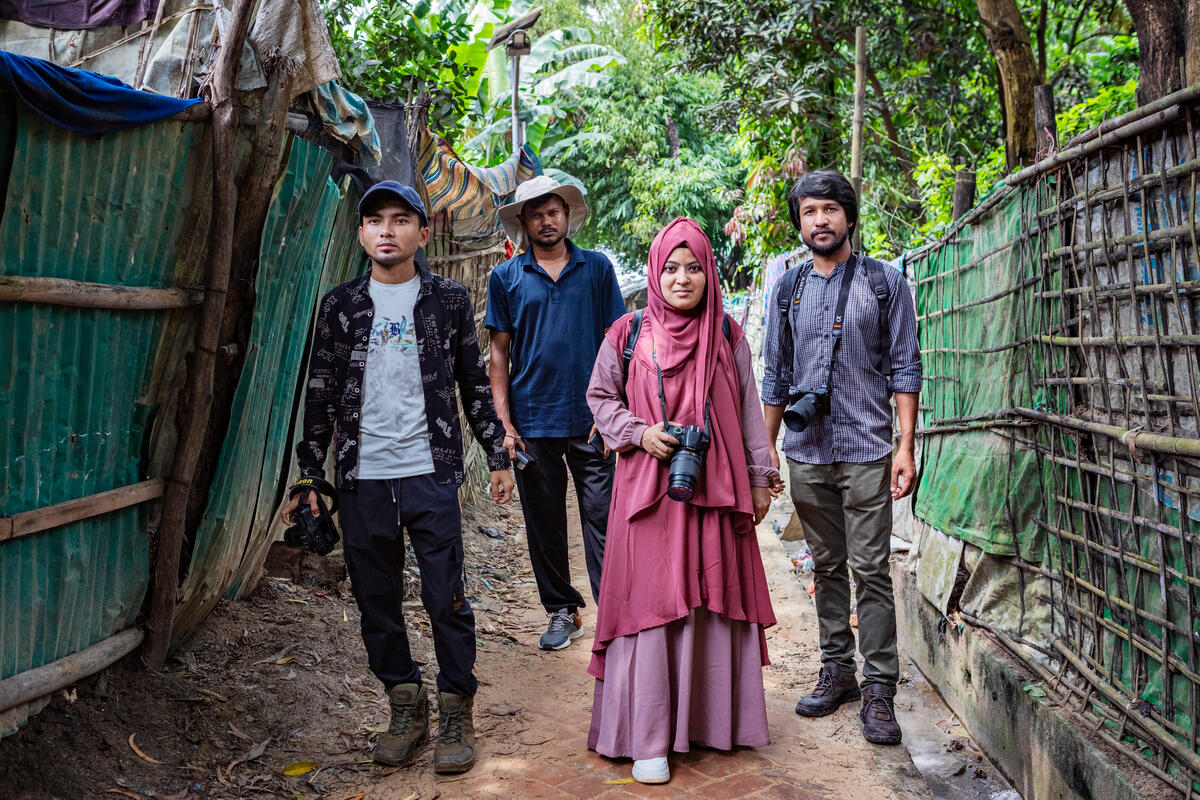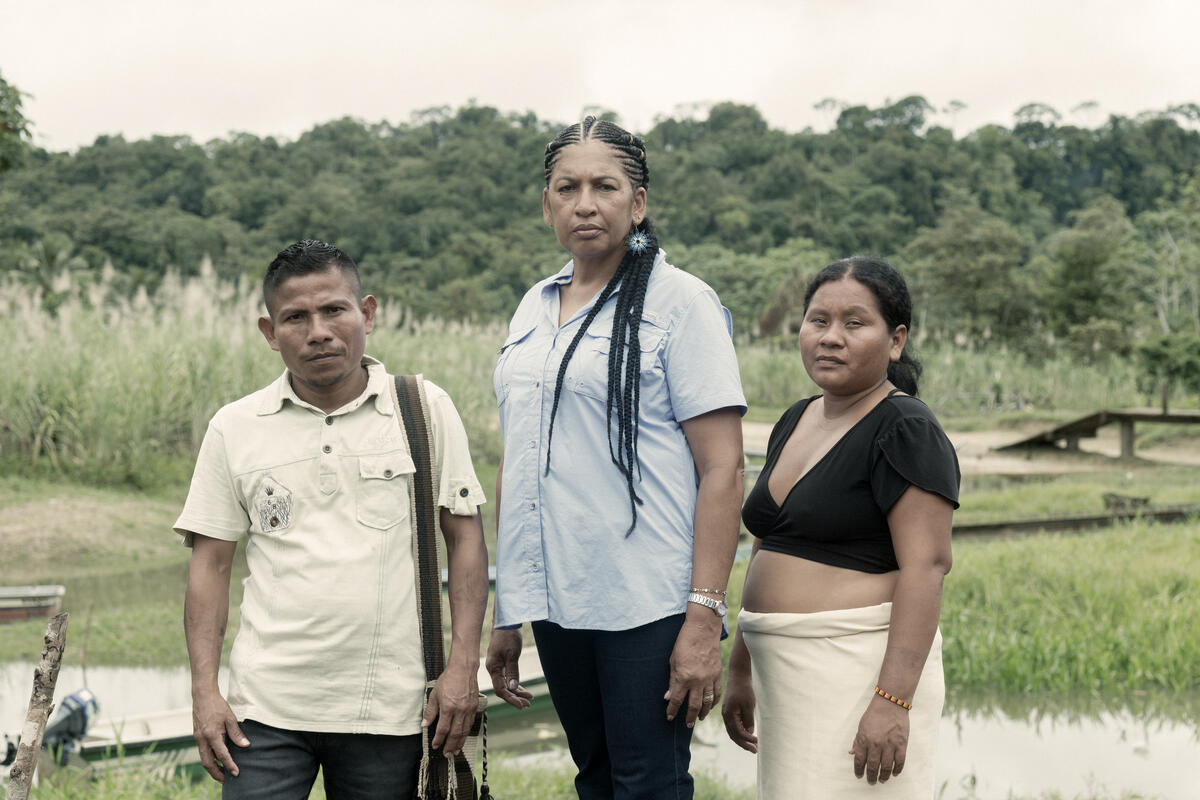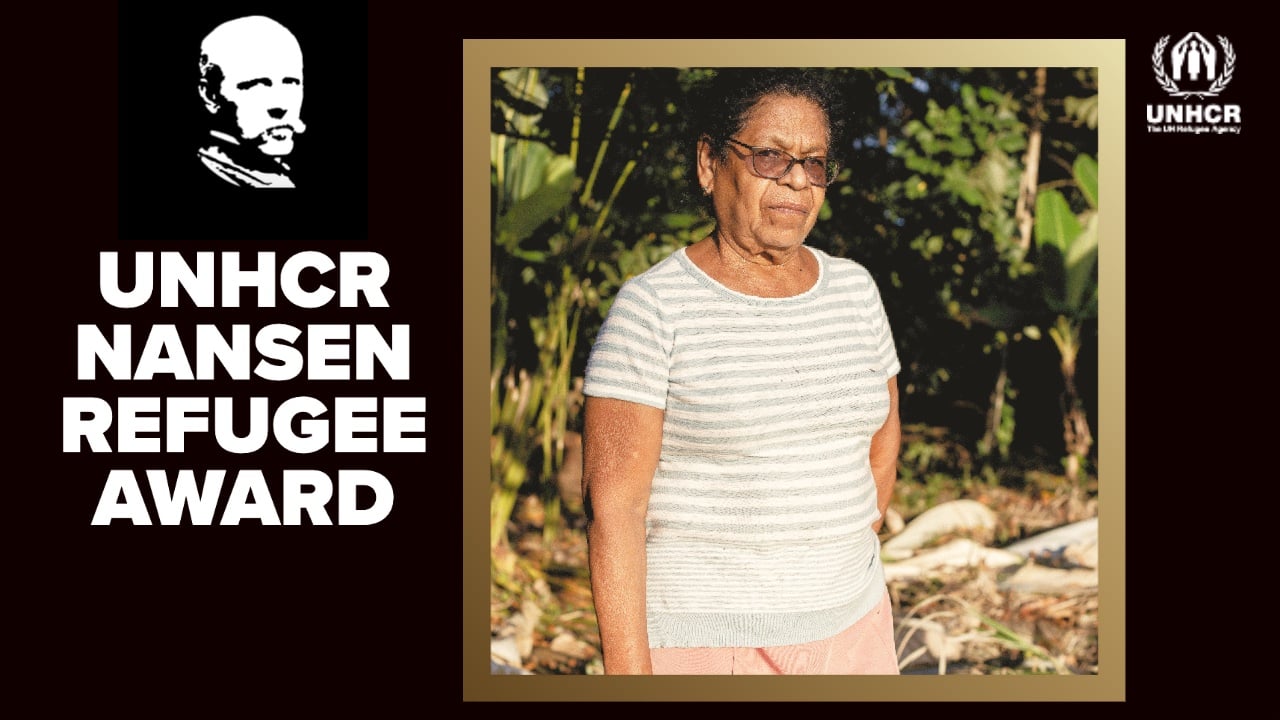Nansen Award winners distribute cows to Lebanese farmers
Nansen Award winners distribute cows to Lebanese farmers

KHIAM, Lebanon, December 22 (UNHCR) - The people of Khiam in southern Lebanon rely heavily on agriculture, especially dairy farming, to make a living. So the brief war that ravaged the south in 2006 was devastating, with many losing cattle and large tracts of land left off limits for months because of clusterbombs.
On Saturday, the winners of this year's Nansen Refugee Award arrived in the village with some welcome gifts - six healthy cows. The UN Mine Action Coordination Centre (UNMACC) hopes the animals will help stimulate the economic recovery of the village of 3,500 people from the damage caused by the conflict between Israeli troops and the Hezbollah militia.
The Nansen Award was given to the Lebanese and international mine clearers who worked for UNMACC in clearing southern Lebanese villages and agricultural land of more than 150,000 bomblets scattered by clusterbombs, allowing hundreds of thousands of displaced people to return home.
UNHCR's most prestigious annual prize also comes with US$100,000, provided by the Swiss and Norwegian government for use in assistance and protection projects for the displaced. UNMACC has chosen to use the money to help agricultural communities get back on their feet in Khiam and six other villages.
"It was clear to us that there was a need to assist farmers, who were the most affected because of the presence of cluster munitions on their land," said UNMACC spokeswoman, Dalia Farran. "We are giving them more than cows, we are giving them hope. We are also giving the villagers a sense of self-reliance."
Some 300 people will benefit from the cattle distribution project in the seven villages. In Khiam on Saturday, dairy farmers gathered eagerly at the municipality building for a draw to decide the new owners. All of them had lost cows, their sole source of income, during the war and many lacked the funds to replace them and had to find other work.
"During the war, I lost 16 cows. Only two calves survived the 33 days of conflict. My land was full of cluster munitions. I lost everything," Ali Abdo Khreiss, one of the lucky winners, said after the draw.
The loss off their main asset had a huge economic impact on the dairy farmers of Khiam, and this had a knock-on effect for the whole village. "Taking care of cows was a family business and it was a profitable sector. They were self-reliant and satisfied," said Nayef Khreis, a member of the municipality. "After the war, most of them had to work for corporate farms as daily workers."
But with dairy cows, people could live off the 20-25 kilogrammes of milk per day and make some money on top of that to live comfortably. "We live from the cow's milk, butter, and yogurt. We raise our kids from these dairy products," explained Mohamad, a father of four from a neighbouring village.
The UNMACC cattle distribution will be welcomed by the southern Lebanese, but a lot more needs to be done to help revive the agricultural sector in the area. "The agricultural sector remains neglected in south Lebanon," said Mohamad Zaher, who works for a local environmental agency that is implementing the UNMACC programme. He added that compensation had been paid to industries, but "those farmers were forgotten."
The Nansen Award is named after the Norwegian arctic explorer Fridtjof Nansen, who was appointed in 1921 by the UN's predecessor, the League of Nations, to be the very first High Commissioner for Refugees. The Award, consisting of a medal and the US$100,000 monetary prize, is given out yearly to a person or group for outstanding services in supporting refugee causes. Previous recipients include Eleanor Roosevelt, Médecins Sans Frontières, Queen Juliana of the Netherlands, Luciano Pavarotti and Graça Machel.
By Laure Chedrawi in Khiam, Lebanon








